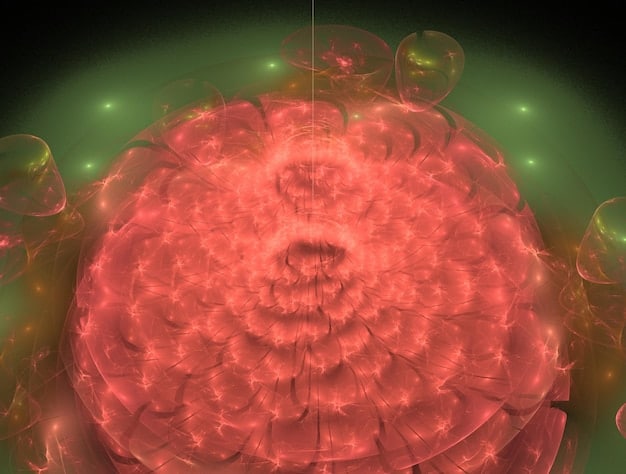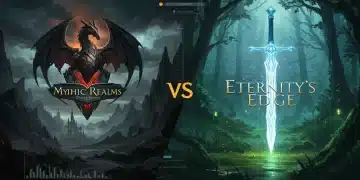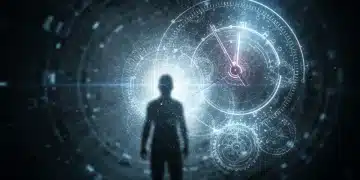Unveiling the Secrets of in 2025: Spoilers & Predictions

plays a significant role in shaping narratives and audience expectations, particularly in genres like science fiction and fantasy. Understanding its evolution can offer insights into future trends in storytelling.
In the ever-evolving world of fiction, the concept of ** plays a pivotal role**, often shaping the audience’s experience and driving engagement. Let’s dive deep into this topic.
What Exactly Is ?
So, what exactly is ? At its core, involves the revelation of information to the audience that was previously hidden or unknown. This dramatic reveal can take many forms, from a character’s true identity to a shocking event that reshapes the entire narrative.
The art of lies in its timing and impact. A well-executed can elevate a story, creating memorable moments and driving emotional engagement. However, a poorly executed can feel forced, contrived, or simply underwhelming.
The Elements of a Great
A great isn’t just about revealing secrets; it’s about crafting a moment that resonates with the audience on a deeper level. Here’s elements that makes a great :
- Surprise: A should catch the audience off guard, defying their expectations and assumptions.
- Significance: The revealed information should have a meaningful impact on the story, altering the course of events or changing our understanding of the characters.
- Emotional Resonance: A powerful evokes strong emotions, whether it’s shock, sadness, joy, or anger.
Common Types of s in Storytelling
s come in various forms, each serving a different purpose and creating a unique impact on the narrative. Here are a few common types:
- Character Reveals: Revealing a character’s true identity, hidden motives, or secret past.
- Plot Twists: Introducing unexpected events or circumstances that change the course of the story.
- Flashbacks and Foreshadowing: Using glimpses into the past or future to hint at upcoming s and build suspense.
Ultimately, is a powerful tool that can be used to enhance storytelling, create emotional impact, and keep audiences engaged. When used effectively, it becomes an integral part of the narrative experience, leaving a lasting impression on readers and viewers alike.
The Evolution of in Media
The use of has evolved significantly throughout the history of media. From ancient Greek tragedies to modern-day blockbusters, storytellers have consistently employed to captivate audiences and deliver impactful narratives. Over time, the techniques and approaches to have become increasingly sophisticated.
In early forms of storytelling, often relied on simple reveals and twists of fate. As narratives became more complex, so did the s, incorporating intricate plotlines and character development to create deeper emotional connections.

Historical Examples of Impactful s
Throughout history, certain s have left a lasting impact on popular culture. Here are a few examples:
- Oedipus Rex: The revelation that Oedipus killed his father and married his mother is a classic example of tragic .
- The Sixth Sense: The that Malcolm Crowe is a ghost is one of the most iconic plot twists in modern cinema.
- Star Wars: Darth Vader’s reveal as Luke Skywalker’s father is a monumental moment in film history.
How Technology Influences Techniques
Technology plays a huge role, influencing Techniques. One of these roles include:
- Digital Platforms: Streaming services and online forums allow for more interactive and immediate reactions to s.
- Visual Effects: Advanced technology has enabled filmmakers to create more visually stunning and elaborate s.
- Social Media: Social media platforms amplify the impact of s, as fans share their reactions and theories in real time.
The evolution of reflects broader changes in storytelling and audience expectations. As technology and media continue to advance, we can expect to become even more sophisticated and impactful.
The Psychology Behind Addiction
Why are we so drawn to s? The answer lies in the complex interplay between our brains, our emotions, and our innate curiosity. Understanding the psychology behind addiction can shed light on why we seek out these reveals and how they affect our overall experience of a story.
At a fundamental level, s trigger a surge of dopamine in the brain, creating a sense of excitement and anticipation. This neurochemical reward system reinforces our desire for more s, leading to a cycle of craving and consumption.
The Role of Dopamine and Anticipation
The pleasure we derive from s is closely linked to the release of dopamine, a neurotransmitter associated with reward and motivation. Here’s a dive on how dopamine and anticipation works:
- Dopamine Release: s trigger the release of dopamine, creating a pleasurable sensation that reinforces our desire for more.
- Anticipation: The anticipation of a can be just as rewarding as the reveal itself, as our brains generate expectations and predictions.
- Curiosity: Our innate curiosity drives us to seek out in order to satisfy our desire for knowledge and understanding.
How s Impact Emotional Engagement
s can be really impactful to emotional engagement. Some points are:
- Emotional Amplification: A well-timed can amplify our emotional response to a story, intensifying feelings of excitement, sadness, or shock.
- Cognitive Dissonance: s that challenge our assumptions or beliefs can create cognitive dissonance, prompting us to reevaluate our understanding of the narrative.
- Catharsis: In some cases, encountering s can lead to a cathartic release of emotions, allowing us to process and resolve conflicts.

The psychology behind addiction is a fascinating area of study that highlights the complex relationship between our brains, our emotions, and our desire for narrative stimulation. Understanding these dynamics can help us appreciate the power of s and their impact on our overall experiences.
The Ethics of Culture
The proliferation of culture raises important ethical questions about the balance between audience engagement and the integrity of storytelling. Sharing can both enhance and detract from the experience for others, leading to ongoing debates about the appropriate boundaries of spoiler sharing.
On one hand, discussing and sharing can foster a sense of community and enhance audience engagement. On the other hand, prematurely revealing key plot points can ruin the experience for those who prefer to discover the story organically.
The Impact of s on Viewing Experience
What is the real impact of s on Viewing Experience?
- Ruined Surprise: s can diminish the emotional impact of key moments by robbing viewers of the element of surprise.
- Altered Expectations: Knowing about a can alter our expectations and change the way we interpret the narrative.
- Reduced Enjoyment: For some viewers, knowing about s can reduce their overall enjoyment of a story.
Strategies for Avoiding Unwanted s
Do those strategies listed below to avoid unwanted s
- Stay Off Social Media: Avoid social media platforms or use spoiler filters to block unwanted information.
- Use Spoiler Warnings: Respect others by providing clear spoiler warnings before discussing sensitive plot points.
- Communicate Preferences: Let friends and family know if you prefer to avoid s.
The ethics of culture is a complex issue with no easy answers. Ultimately, finding a balance between sharing our excitement and respecting the experiences of others is key to fostering a healthy and inclusive fan community.
Future Trends in s
As storytelling continues to evolve, so too will the techniques and approaches used to deliver s. Looking ahead, we can anticipate a number of exciting trends that will shape the future of in entertainment.
One key trend is the increasing use of interactive storytelling, where audiences have a more active role in shaping the narrative and uncovering s. This can take the form of video games, choose-your-own-adventure stories, or immersive theater experiences.
The Rise of Interactive Storytelling
How the rise of interactive storytelling will affect the approach to s?
- Personalized s: Interactive stories can deliver s tailored to individual player choices.
- Multiple Endings: Games can have multiple endings, each with its own unique set of s.
- Emergent Narratives: Players can create their own s through their interactions with the game world.
The Role of AI in Generating s
How is AI helping generating s?
- Predictive s: AI can analyze vast amounts of data to predict what types of s will resonate with audiences.
- AI-Generated Plots: AI can be used to generate new and unexpected plot twists and s.
- Customized s: AI can create s tailored to individual viewer preferences.
The future of is poised to be dynamic and innovative, blending traditional storytelling techniques with cutting-edge technologies to deliver experiences that are more engaging, personalized, and impactful than ever before.
‘s Impact on Pop Culture
s have become an integral part of pop culture, influencing the way we consume and discuss media. The impact of a can extend far beyond the initial story, shaping our conversations, memes, and cultural references.
Iconic s often become watershed moments, defining a generation’s understanding of storytelling and inspiring countless parodies and homages. The widespread dissemination of s can also lead to a ripple effect, influencing the creative choices of other storytellers.
How s Become Cultural Touchstones
How s become cultural touchstones?
- Memorable Moments: s often create unforgettable moments that stay with audiences long after the story ends.
- Shared Experiences: s provide a shared experience that brings people together and fosters a sense of community.
- Cultural References: Iconic s become ingrained in our cultural consciousness, appearing in memes, jokes, and other forms of expression.
Examples of s That Defined a Generation
Some iconic s are:
- The Empire Strikes Back: Darth Vader’s “I am your father” reveal is one of the most iconic moments in film history.
- The Usual Suspects: The that Keyser Söze is Verbal Kint is a twist that continues to amaze viewers today.
- Game of Thrones: The Red Wedding is a shocking and unforgettable moment that changed the landscape of television.
The impact of s on pop culture is undeniable, shaping our collective consciousness and influencing the way we engage with stories. As technology and media continue to evolve, the role of s in our cultural landscape will likely become even more significant.
| Key Point | Brief Description |
|---|---|
| 🤯 What is Exactly | Revealing previously hidden information to the audience for dramatic impact and engagement. |
| 🎬 Evolution of in Media | From simple reveals in ancient tragedies to sophisticated plot twists in modern media. |
| 🧠 Psychology Behind Addiction | Dopamine release and emotional engagement drive the desire for reveals. |
| 🎭 Ethics of Culture | Balancing audience engagement with respecting others’ viewing experience by avoiding unwanted s. |
FAQ
▼
A great is characterized by surprise, significance, and emotional resonance. It should catch the audience off guard, profoundly impact the story, and evoke a strong emotional response.
▼
Technology, especially digital platforms and visual effects, has enabled more interactive and visually stunning s. Social media also plays a crucial role in amplifying reactions.
▼
s trigger dopamine release in the brain, creating pleasure and anticipation. This reinforces our desire for knowledge and understanding, fueling a cycle of craving and consumption.
▼
To avoid unwanted s, stay off social media, use spoiler warnings when discussing plot-sensitive information, and communicate your preferences to friends and family who may share s.
▼
AI could lead to predictive, AI-generated, and customized s. It can analyze data to predict resonant s, generate unexpected twists, and tailor s to match viewer preferences.
Conclusion
Exploring reveals its deep influence on storytelling, audience engagement, and pop culture. From ethical considerations to technological impacts, understanding enhances our appreciation of narrative art.

![Exploring [Topic]: Spoilers, Theories, and Predictions Exploring [Topic]: Spoilers, Theories, and Predictions - Cover Image](https://spoilernew.com/wp-content/uploads/2025/06/spoilernew.com_31_1750193099_cff22aee_cover-360x180.jpg)



